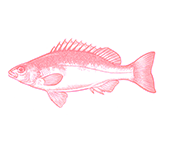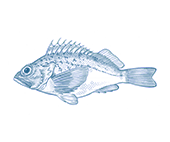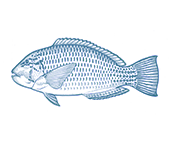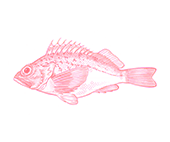




- Better Choice
Wild Caught
Region:
SA
- In South Australia, octopus is primarily caught as retained bycatch using baited pot methods targeting rock lobsters. They are also caught in a new developmental fishery that targets octopus using unbaited pots, but also in bottom trawl, gillnet and haul seine fisheries.
- Although there is limited stock status information for the species of octopus caught, octopus generally grow and reproduce quickly, and populations are resilient to fishing pressure. Multiple species are caught, but catches are not recorded to species level.
- There are currently no explicit management measures in place to control octopus catch, but the fishery is small scale and overfishing is highly unlikely.
- Octopus pot and trap fisheries are highly targeted, have very low impacts on seafloor habitats, and fishing poses a low risk to protected species.
- South Australian Rock Lobster Fisheries, West Coast, Spencer Gulf and Gulf St Vincent Prawn Trawl Fisheries, Marine Scalefish Fishery (current catch not disclosed but >49t in 2020/21)
In South Australia, octopus catch comes primarily as retained bycatch in pot fisheries targeting rock lobsters. Octopus is also targeted in a new developmental fishery using shelter pots (which are unbaited, attracting octopus by providing habitat). These fishing methods pose low risk to seabed habitats and have low levels of bycatch. Octopus is also taken in gillnets and bottom trawl fisheries, which can have much higher levels of bycatch and more significant habitat impacts. There is little information available to assess the habitat and bycatch impacts of any of these fisheries, however.
Australian octopus fisheries are generally poorly understood, with little information on the species caught or structure of octopus populations. Multiple octopus species are caught including Maori, Pale and Southern Octopus. There is little information on the octopus catch and no explicit management controls for octopus catch in South Australian fisheries.
The lack of information supporting management in SA Octopus fisheries presents some concern as the overall catch is significant. The developmental target fishery uses a very low risk fishing method, and the pot and trawl fisheries in which they are caught as byproduct pose acceptably low risks to habitats, bycatch and protected species.
Marine park protection throughout State and Commonwealth waters is likely to provide a small additional degree of protection for octopus populations.


